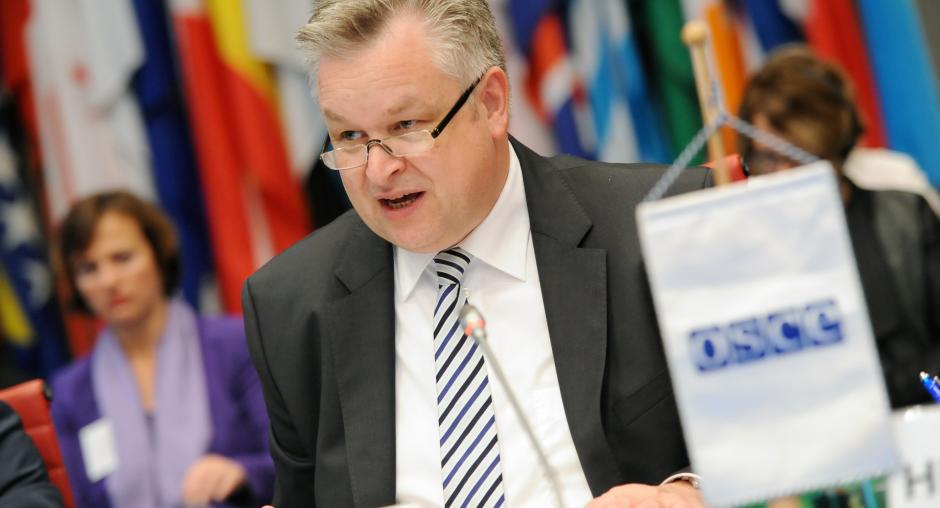On International Day against the Death Penalty, ODIHR Director draws attention to the international debate linking capital punishment with torture and other ill-treatment

WARSAW, 10 October 2016 – Today, on the occasion of the International Day against the Death Penalty, Michael Georg Link, Director of the OSCE Office for Democratic Institutions and Human Rights (ODIHR), called on those OSCE countries that continue to apply the death penalty or maintain it in law to continue to consider its complete abolition, in the context of the international debate linking the practice with torture and other ill-treatment.
“My Office has noted the evolving international debate on the legality of the death penalty within the context of the fundamental concepts of human dignity and the prohibition of torture and other ill-treatment,” said Director Link. “I believe it is necessary for OSCE participating States to discuss this issue further and to reconsider whether the death penalty actually fails to respect the inherent dignity of those impacted by this form of punishment.”
ODIHR’s annual report The Death Penalty in the OSCE Area: Background Paper 2016, published on 21 September 2016, has a specific focus on the relationship between the practice of capital punishment and the prohibition of torture and other cruel, inhuman or degrading treatment or punishment. It examines a number of issues surrounding the death penalty that are already considered by many as running afoul of the absolute prohibition, including the execution of juveniles, secret executions or the use of certain methods of execution.
"While keeping the question of capital punishment under consideration, I would invite participating States to note the background paper’s focus on the increasing recognition of the inherently cruel, inhuman and degrading nature of capital punishment, which fails to act as a deterrent, represents an unacceptable denial of human dignity and integrity, and makes any miscarriage of justice irreversible," Director Link said.
In response to the ODIHR 2016 questionnaire on the death penalty, 19 participating States explicitly stated that their governments consider the death penalty cruel, inhuman or degrading punishment, highlighting the evolution of international standards on this topic. This year’s report found that 52 OSCE participating States have abolished the death penalty outright, while three maintain the penalty in law but not in practice. Belarus and the United States remain the only two participating States that continue the practice of capital punishment.
